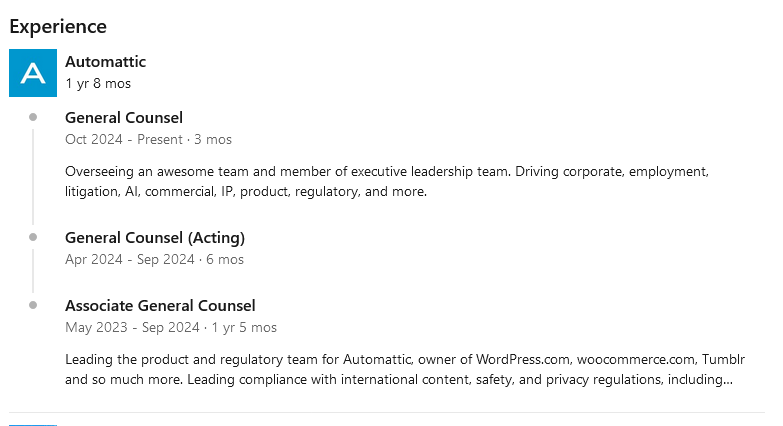Matt Mullenweg Signed WordPress Foundation Trademark Application as “CEO”, Despite Not Being Its CEO
Former direct employee of Matt Mullenweg, Samuel Sidler, wrote an interesting post about the unclear ownership of the Openverse, which is a WordPress project. One piece of the story ties into something we have looked at. The extent that the WordPress Foundation is intertwined with Automattic, especially with trademark applications. He wrote this:
The application of the wordmark was made by the WordPress Foundation, with Mullenweg signing the paperwork with a title of “CEO.”[9] Meanwhile, on the trademark application for the logo, Mullenweg signed the paperwork with a title of “Founder.” On November 10, 2022, Chloe Bringmann—with a title of “Chief of Staff”—signed a “statement of use” for the logo, noting first use was July 20, 2021. Bringmann signed a “statement of use” for the wordmark on May 23, 2023, noting first use was April 27, 2021. [Read more]
